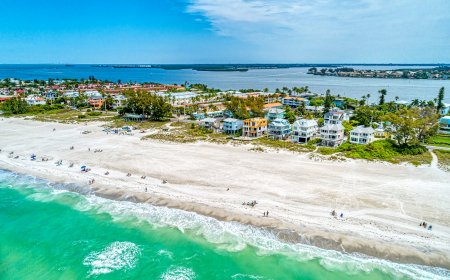Affordable Heating and Air Conditioning Repair Services (Take A Look)
In humid summer months, studies have linked high heat and humidity with an increased risk of heart attacks, especially among the elderly; it can be a health issue. While air conditioners are invaluable when functioning correctly, rising temperatures and humidity levels inside your home can cause stress and become a safety concern when they fail. Understanding the importance of timely maintenance and how to address common issues can save you from discomfort and costly repairs.
The Importance of Routine Air Conditioning Maintenance and Repair
For most people, central heating and air conditioning is a matter of comfort during hot, humid summer months. For others, especially the elderly, it can be a health issue. Some studies have linked high heat and humidity with an increased risk of heart attacks*. Regardless of why you enjoy them, air conditioners are great when they are functioning properly. But when the temperatures outside are rising and the temperature and humidity are rising inside, it can cause stress and even become a potential safety concern. That’s why air conditioner repair services are an essential expenditure.
It's important to remember that not every heating and air conditioning system breakdown will fall under the label of emergency service. Sometimes it’s an easy fix that can be handled with a system adjustment, cleaning, or minor repair. It’s never a good day when your air conditioning system stops working and you need to call a service technician for HVAC maintenance... but the sooner you call, the sooner you’ll be back to enjoying cool comfort.
It's important to remember that not every heating and air conditioning system breakdown will fall under the label of emergency service. Sometimes it’s an easy fix that can be handled with a system adjustment, cleaning, or minor repair. It’s never a good day when your air conditioning system stops working and you need to call a service technician for HVAC maintenance... but the sooner you call, the sooner you’ll be back to enjoying cool comfort.
How Often Should You Schedule an HVAC Service?
It’s recommended that your home AC unit be serviced by properly trained HVAC technicians at least once a year. An air conditioner’s condenser coils and air filter require regular maintenance to ensure that it’s running efficiently. Regularly scheduling preventative AC maintenance can also help extend the life of your air conditioning system.
HVAC Repairs
Central air conditioning units are often part of a complete heating and cooling system. If you have an all-electric system, your air conditioning might actually be supplied by a heat pump. Either way, there are a number of components involved and a number of ways the system can malfunction that may indicate it is time for an AC repair service.
HVAC Repairs
Central air conditioning units are often part of a complete heating and cooling system. If you have an all-electric system, your air conditioning might actually be supplied by a heat pump. Either way, there are a number of components involved and a number of ways the system can malfunction that may indicate it is time for an AC repair service.
When Is It Time for AC Repair?
Some common HVAC system malfunctions that may require air conditioning repairs include:
- Running Constantly/Not Keeping Up with Cooling Needs: Every AC system will work a little harder on hotter, more humid days. But if your system seems to run constantly with less than adequate cooling, you may have a problem lurking. An undersized unit will struggle when demand is high. Low refrigerant levels can cause longer and less effective cooling cycles. A dirty air filter, dirty inside evaporator coil, or dirty outdoor condensing coil can reduce efficiency and effectiveness as well. Try cleaning or replacing the air filter before contacting a professional for air conditioner repair service.
- Repeatedly Starting Then Stopping (Short Cycling): If your system seems to start and then shut off over and over or won’t turn on altogether, you may have a system that was oversized during HVAC installation. Low refrigerant levels or a refrigerant leak can also be hard on AC systems, causing them to run erratically. A clogged or excessively dirty air filter and a frozen or dirty evaporator coil can have the same effect. Cleaning or replacing the air filter may help, but cleaning an evaporator coil requires an air conditioner service call.
- Weak or No Airflow: Two-stage or multi-stage cooling systems often run for longer periods on a lower fan setting. If your indoor temperature matches the temperature you set on the thermostat, your system is operating normally. However, if you have weak or no airflow, and the temperature continues to rise inside or hot air is coming out when the temperature is set to cool, you may have an issue. This could signal a dirty air filter or an issue with the indoor unit’s blower or fan motor. Try changing or replacing the air filter before contacting a professional.
- Not Running at All: Before calling a Carrier dealer for in-home services or repair, check your thermostat to make sure the system hasn’t been turned off. Then, check your electrical panel to be sure a blown fuse isn’t the culprit or the circuit breaker hasn’t tripped. Also, check air filters for excessive dirt or clogging. If everything checks out, it’s time to call a professional. Most air conditioners include some built-in sensors that can shut down operation under abnormal conditions to help prevent damage to vital (and expensive!) components like the compressor, evaporator coil, and condenser coil.
- Unusually High Energy Bills: During the heat of the summer, your system will work harder and more often, so you may see higher electric bills. If your utility bill seems unusually high compared to the previous month’s (or previous year’s bill for the same month), it might be time to investigate. To ensure that your AC unit is energy efficient, check the air filter and outdoor condenser coil for excessive dirt and clogging. If everything checks out, or if you see a buildup of ice on the outdoor coil or the copper refrigerant tubing, call an HVAC technician for professional air conditioner repair service.
What to Check If Your AC Stops Working
When an air conditioner ceases to function, typical concerns often revolve around:
Ensuring regular maintenance from certified HVAC companies like your local Carrier expert, coupled with prompt attention to these matters, not only helps prevent expensive repairs but also ensures optimal energy efficiency in cooling. To learn more about troubleshooting your AC, visit our air conditioner troubleshooting page.
- A malfunctioning thermostat
- Clogged air filters that impede airflow through your air ducts
- A refrigerant leak compromising energy efficiency
- Electrical issues like blown fuses or tripped circuit breakers
What Steps Are Taken in AC Repairing?
Dealing with a broken air conditioner can be frustrating, especially during hot weather. Before calling a professional, check if there are any obvious issues such as a tripped circuit breaker, a blown fuse, a disconnected power supply, or a thermostat that is not set correctly. If you're unable to identify or fix the problem yourself, it's best to call your local Carrier dealer. They have the expertise and equipment to diagnose and repair air conditioning issues safely and effectively.
Your local Carrier dealer will likely follow some of the below steps after you request a consultation:
Your local Carrier dealer will likely follow some of the below steps after you request a consultation:
- Initial assessment of unit and surrounding area
- Visual inspection and recommendations
- Diagnostic testing
- Repair or replacement of equipment
- Final inspection of the repaired unit or installation
Finding an Air Conditioner Repairman, Service, or Replacement
When your air conditioner stops running, don’t always assume the worst. Before you jump to the “repair or replace” conversation in your head, do a little investigating on your own. You might be surprised that the issue is something you can resolve yourself. But don’t wait too long before calling a Carrier HVAC Dealer for an air conditioner repair service. Even a minor problem can lead to an emergency HVAC service if it’s not addressed—and replacing costs or installation costs can be easily avoided by regular maintenance. More importantly, the longer you wait, the longer it will be before you can enjoy the cool comfort of your home. You may also want to check out our mini split ac repair and troubleshooting guide.
Frequently Asked Questions About Air Conditioning Repair
Why Is My AC Running But Not Cooling?
Your air conditioner may be running but not cooling properly for several reasons, including a thermostat set incorrectly, a dirty air filter, a blocked condenser unit, a refrigerant leak, or an improperly sized AC unit.
How Do You Diagnose AC Problems?
You can diagnose your AC problems by following some common best practices, such as checking your thermostat settings, examining if your air filter is dirty, and identifying if you have any electrical panel issues. For more information, visit our page on how to troubleshoot an air conditioner or call your local Carrier expert.
How Do I Fix My AC Not Blowing Cool Air?
You may have an issue with your indoor fan, or “blower,” as it is commonly referred to. The blower lives inside your furnace or air handler unit and is responsible for blowing cold air out to your living areas and pulling return air back into the system to be cooled by the evaporator coil. For more information, visit our page on why my air conditioning fan is not working or contact your local Carrier HVAC dealer.
Is It Worth Repairing an Air Conditioner?
Deciding whether to repair or replace your air conditioning depends on many factors, including how old your unit is and the cost of the repair. If you have an older unit and the repair is costly, you may be better off replacing it with a new unit. Purchasing a high-efficiency AC unit may help save you money in the long run by its energy savings. Your local Carrier HVAC dealer can help you decide if it is time to repair or replace your AC unit.
By following these guidelines and ensuring regular maintenance, you can keep your air conditioning system running efficiently and effectively, providing you with the comfort and safety you need during the hot summer months.
Your air conditioner may be running but not cooling properly for several reasons, including a thermostat set incorrectly, a dirty air filter, a blocked condenser unit, a refrigerant leak, or an improperly sized AC unit.
How Do You Diagnose AC Problems?
You can diagnose your AC problems by following some common best practices, such as checking your thermostat settings, examining if your air filter is dirty, and identifying if you have any electrical panel issues. For more information, visit our page on how to troubleshoot an air conditioner or call your local Carrier expert.
How Do I Fix My AC Not Blowing Cool Air?
You may have an issue with your indoor fan, or “blower,” as it is commonly referred to. The blower lives inside your furnace or air handler unit and is responsible for blowing cold air out to your living areas and pulling return air back into the system to be cooled by the evaporator coil. For more information, visit our page on why my air conditioning fan is not working or contact your local Carrier HVAC dealer.
Is It Worth Repairing an Air Conditioner?
Deciding whether to repair or replace your air conditioning depends on many factors, including how old your unit is and the cost of the repair. If you have an older unit and the repair is costly, you may be better off replacing it with a new unit. Purchasing a high-efficiency AC unit may help save you money in the long run by its energy savings. Your local Carrier HVAC dealer can help you decide if it is time to repair or replace your AC unit.
By following these guidelines and ensuring regular maintenance, you can keep your air conditioning system running efficiently and effectively, providing you with the comfort and safety you need during the hot summer months.
What's Your Reaction?















